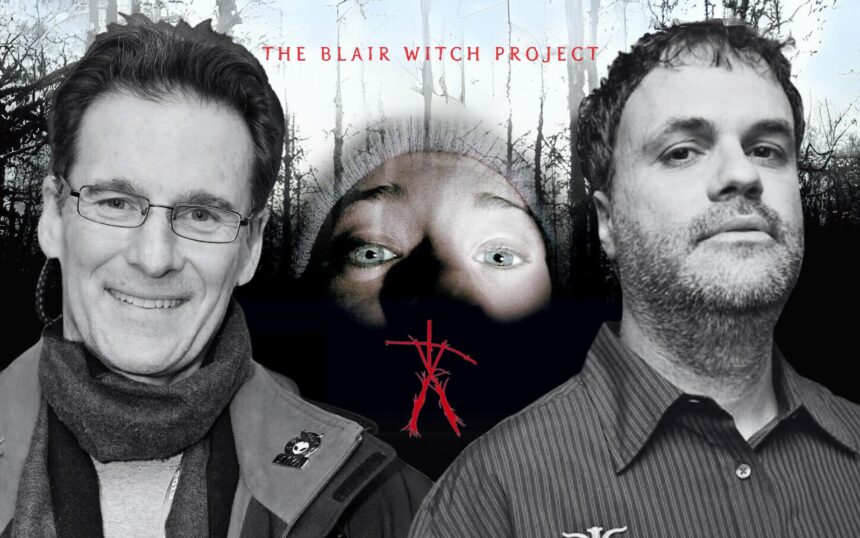Welcome to Hurwitz.TV’s Directors Interview Series, where we chat with some of the most influential filmmakers from all over the world.
In this series, you’ll have the opportunity to gain profound insights from the minds and creative journeys of these cinematic storytellers. Our goal is to explore the art of filmmaking, discover the inspirations and motivations that drive these directors, and delve into the captivating stories behind their remarkable works. From seasoned veterans to emerging talents, we talk about their artistic influences, memorable experiences, and the challenges they’ve faced along the way.
Today, we are joined by Daniel Myrick and Eduardo Sánchez, the writers and directors of the horror classic “The Blair Witch Project.” Released in 1999, the film popularized the found-footage genre, changing the face of horror forever.
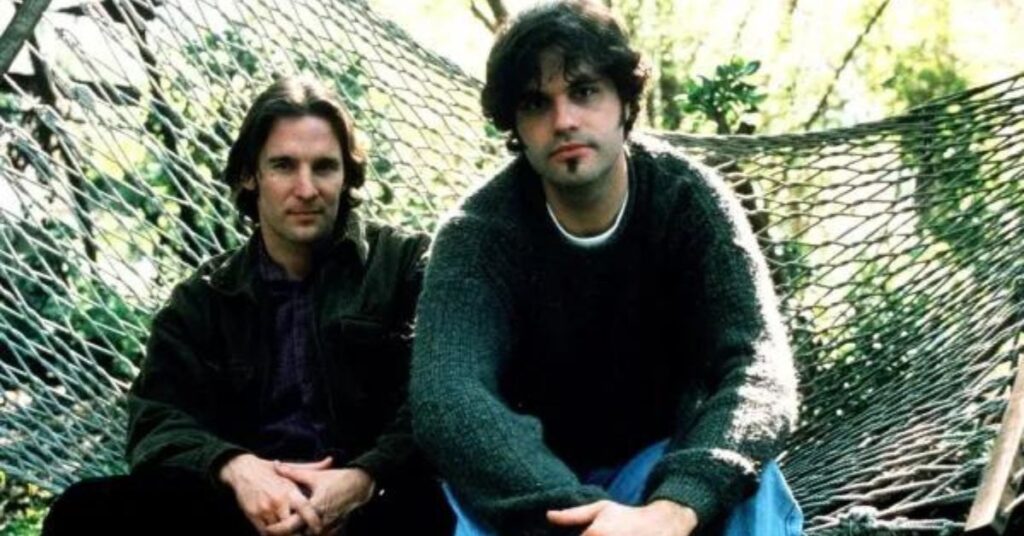
Dennis: Thank you for joining me, gentlemen! As a big fan of The Blair Witch Project, this is quite a big deal! To kick things off, can you share the story of you wanting and deciding to become a filmmaker? What drove you to pursue this career path?
Dan: In a way it sort of pursued me. When I was around 13 years old, my mother bought me a camera where I learned about lighting and composition. From there I got my hands on a video camera where I could turn those images into stories. But I don’t think it was until I went to the theater back in ’77 and watched ‘Close Encounters of the Third Kind’ that I remember thinking, ‘I want to make other people feel the way I feel after watching this film.’ That was a turning point for me, where the film medium, in all its powerful glory, ignited that passion in me. From that point on, it was just a matter of how to get it done.
Ed: My dad loved going to the movies and he’d take me along just to get me out of the house. I loved it. Not just the movies but hanging with my dad. Then Star Wars came out when I was 8 and it changed EVERYTHING. I was entranced by not only the film but the phenomenon that surrounded it. I was suddenly interested in all aspects of filmmaking and tried to learn as much as I could from books and whatever BTS programming I could find. But it was mostly just a hobby for me – I never imagined I would be a filmmaker. Then in 11th grade of high school, I took a television production class and as soon as the teacher started talking about the many careers in film, TV, and radio, I knew I had found my calling.
Dennis: What was the greatest piece of advice given by a mentor that shaped the artist that you are today?
Dan: I never really had a mentor, per se, but have been highly influenced by other filmmakers over the years. One of my favorites is Stanley Kubrick, in particular, his time as a photojournalist at Look Magazine. He had such an insightful eye on the human condition that was evident throughout his later career in motion pictures. I’ve always been inspired by his exploration of the human psyche in his very ’noir-ish’ style combined with a fearless, hands-on approach to the process. One quote of his, “A film is – or should be – more like music than like fiction…” resonated with me and has helped to guide me in my own attempts at telling stories. Because, at the end of the day, it’s an emotional process, not an intellectual one.
Ed: I luckily had mentors in every stage of my schooling. There always seemed to be someone who believed in me and encouraged me to continue my journey. Gary Dorr was the media specialist at my high school and took me and a group of friends I was making films with under his wing and really went out of his way to help us in whatever hair-brained schemes we cooked up. In college, a professor named Don Smith saw my potential pushed me out of my comfort zone, and taught me to take chances and strive for more in my work. Then, in film school, a screenwriting teacher, Mary Johnson, nurtured the emotional side of my filmmaking and showed me how to grow as a storyteller. I feel blessed that these mentors came into my life when they did and had the patience to help me along this journey.
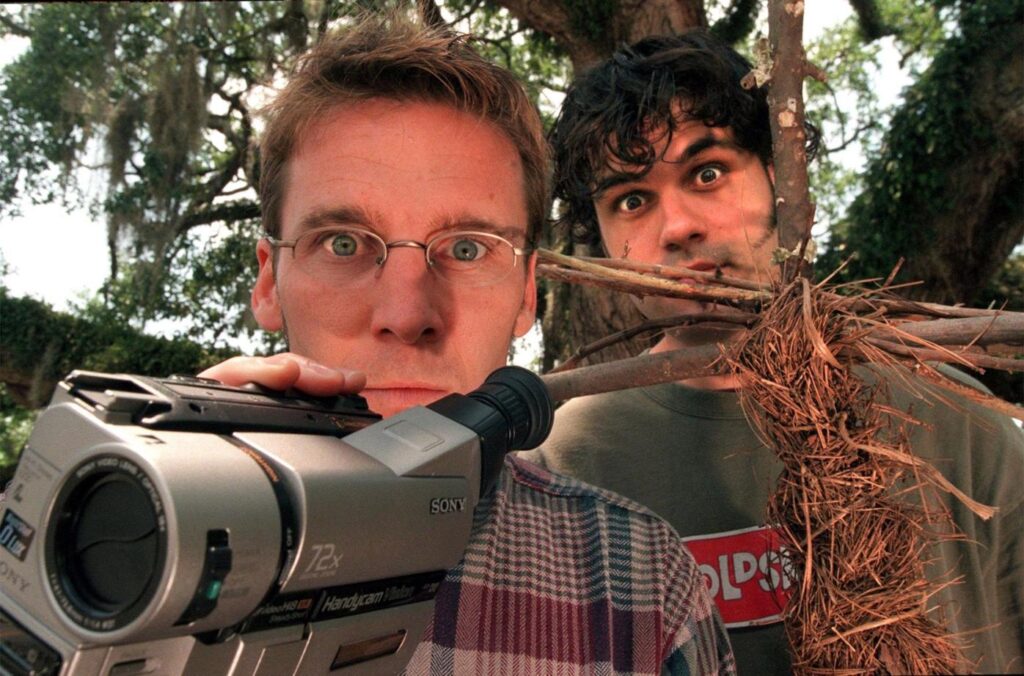
Dennis: Which movies and filmmakers inspired you the most?
Dan: Well, a couple I just mentioned above. There have been many others; Alfred Hitchcock, Francis Coppola, Oliver Stone, and more recently, David Fincher, Alfonso Cuaron, and Christopher Nolan, just to name a few. Works like, ‘Rear Window’, ‘Apocalypse Now’, ’Nature Born Killers’, ’Seven’, ‘Children of Men’, and ‘Inception’ will always be the kinds of artistic achievements I could only hope to aspire to.
Ed: Early on, Star Wars and Spielberg – then Spike Lee got on my radar with Do the Right Thing, one of the most powerful movie experiences of my life. Reading Spike’s books showed me the indie film route and still inspires me to this day. But so many have inspired and continue to inspire – Hitchcock (BIRDS, REAR WINDOW), Scorsese (GOODFELLAS, TAXI DRIVER), Terry Gilliam (BRAZIL, 12 MONKEYS), Kubrick (2001, CLOCKWORK ORANGE) DePalma (UNTOUCHABLES, BODY DOUBLE) – I could go on for a LONG time with this list.
Dennis: What are the most challenging and rewarding parts of making a movie?
Dan: Raising money. That will always remain the most challenging. Once you’ve conquered that mountain, you then have to deliver a good film. I have always been very involved with the entire process, from inception, writing the script, raising the money, directing, editing, and even marketing. Every discipline has its ups and downs, but all come together to make an experience that you hope will resonate with an audience, and when it does, there’s no better feeling in the world.
Ed: Getting it green-lit is always a battle. Then the whole process of keeping your vision intact and powering through all the challenges and issues that keep popping up to derail whatever plans you’ve made. Believing in yourself enough to keep going – not letting the voice in your head mess with you too much. Long days and nights of shooting, being away from home and the family, facing the reality of what you’ve shot in the editing room. It’s all stressful as hell. Rewarding is when you’re done with it – the last day of the shoot is always something to look forward to.
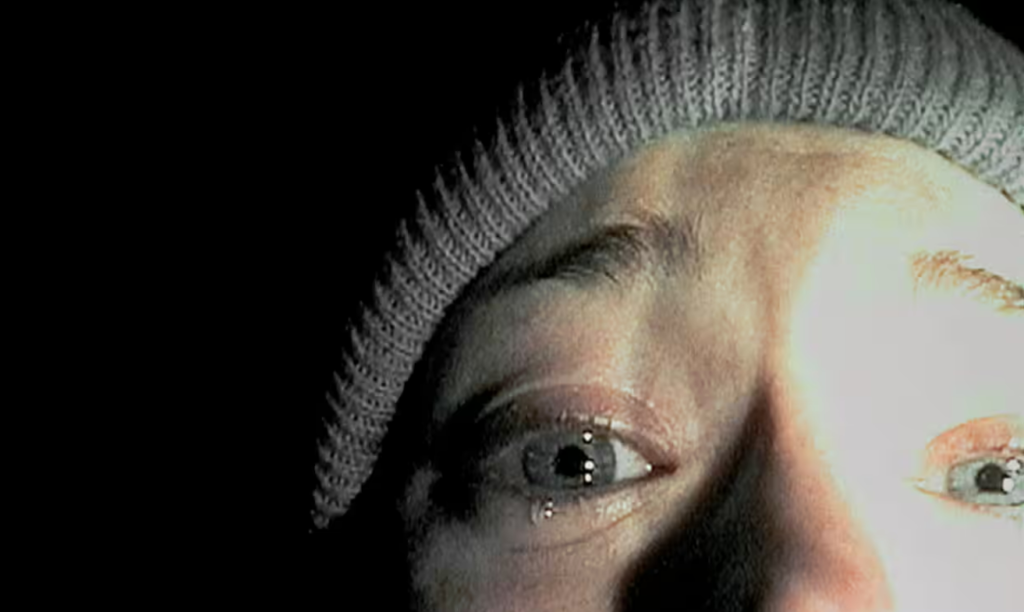
Dennis: You are both best known for the horror classic “The Blair Witch Project.”. Can you talk about the inspiration behind the movie? Whose idea was it, and how did the concept for this groundbreaking film come to fruition?
Dan: Ed and I were heavily inspired by the ’70s era television series, ‘In Search Of’ with Leonard Nimoy, and the indie film, ‘Legend of Boggy Creek’ directed by Charles B. Pierce. Both of these walked the line between ‘fact and fiction’ to great effect when we were kids. In addition, I created a ‘UFO’ club in my youth during a time when those sorts of phenomena were trending in the public sphere. No doubt, all of these influences went into Blair’s characteristic faux reality conceit. Together, Ed and I outlined the core idea of the lost filmmakers where I subsequently went on to write the shooting script, from which we worked during production. With the help of our producing partner, Gregg Hale, who kicked in a few thousand dollars of his own money to help with development, we were able to start the process of raising funds for the film. After about a year of scraping together the money through ‘friends and family’ we were able to go into production in the Fall of 1996.
Ed: It was all MY IDEA! Hah! No, truly a collaboration from beginning to end, not only with Dan but with Gregg Hale as the producer and unofficial third director, and Mike Monello with the post, marketing, and website. It was an idea that crept up in an early 90’s film school weekend after Dan and I saw a very un-scary horror movie in the theater. We rented a bunch of old VHS tapes from when we were young and ended up still being terrified of the pseudo-doc sub-genre that the TV show IN SEARCH OF inhabited. The simple idea of filmmakers lost in the woods and their footage found years later continued to develop for another few years until Gregg got involved and jump-started the production.
Dennis: Here we are, almost 25 years later, and The Blair Witch Project still continues to live as one of the most iconic horror films in modern cinema. When you were making it, did you ever think about how successful it would be not just to horror fans, but also to cinephiles all over the world? Or were you surprised by its lasting impact and influence on the genre?
Dan: I think Ed and I knew we had an interesting concept back in the day based on the reactions we received when we would tell anyone of the initial idea. But there was really no way to predict its ultimate success and long-term influence on popular culture and, of course, its box office success. To this day I’m still amazed at the reactions I get from people when they talk of the film and clearly remember the time and place they were when seeing the film for the first time.
Ed: It was the best idea we had – every time we pitched it people would get enthusiastic, but we had no idea what was to come. We knew we had something cool but would’ve been fools to try to predict that success. We were hoping for a video deal and maybe (fingers crossed) HBO. Never dreamed it would go theatrically worldwide and make all the money it did. Still amazed at the longevity of the film. Seems like everyone I meet has their own BLAIR WITCH story.
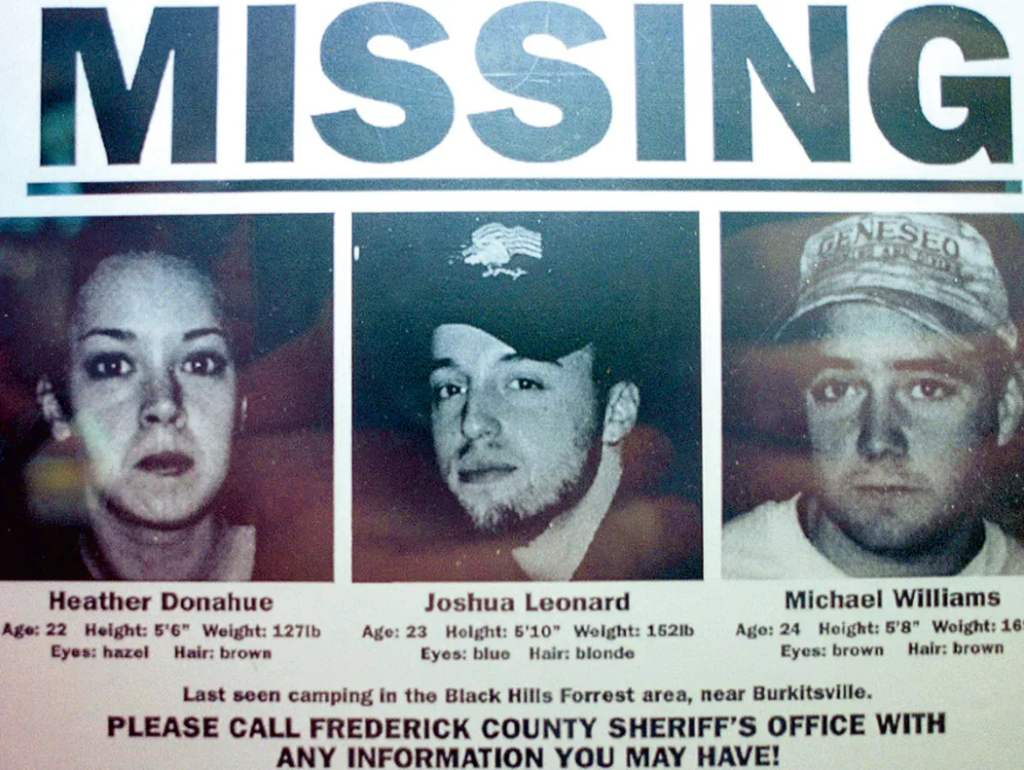
Dennis: I remember watching it when I was just 10 years old on VHS, thinking that it was actually a real tape with real-life characters. Years later, I discovered what “found footage” horror is, which The Blair Witch Project popularized. What are some of the found footage horror films in modern cinema that you love?
Dan: I was impressed with later films that took this style of filmmaking and made it their own like, “Paranormal Activity” (Oren Peli), “One Cut of the Dead” (Shinichirou Ueda), “Lake Mungo” (Joel Anderson). All have their own approach to the genre but execute in a very effective way.
Ed: Lots of great ones – PARANORMAL ACTIVITY, REC, EUROPA REPORT, VHS, HOST – too many to name! Feel honored to have possibly inspired some of this work.
Dennis: Lastly, name a filmmaker or an actor you would love to collaborate with and why?
Dan: That’s a tough one. There are so many out there, but certainly, the likes of Spielberg, Ethan Hawke, and Cate Blanchett are just a small sampling of artists that I think would be amazing to work with.
Ed: Been lucky to have worked with a bunch of people on my wish list through my TV work and the anthology films I’ve been a part of, but there is so much crazy talent out there that I don’t even want to go down this road. But if I’d have to say one actor it would be Shia Lebeouf – been fantasizing about somehow harnessing that energy into an amazing collaboration for a long time. I think we’d get along…🤣
Dennis: Thank you so much for the time, both of you! This has been incredible!

